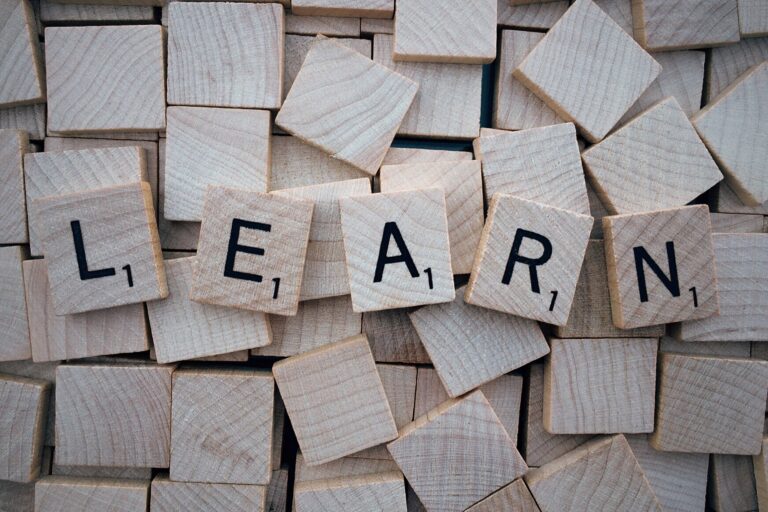Cấp độ: Trung Cấp (Upper Intermediate)
Hôm nay Bino Academy muốn chia sẻ 2 điều cần thiết khi chúng ta tập luyện bất kì kĩ năng nào. Mọi người hãy nghe vài lần trước rồi hay đọc để tranh thủ học luôn tiếng Anh luôn. Have fun learning!
Audio:
Reading Text:
When it comes to learning a new skill, two crucial factors that cannot be overlooked are repetition and novelty. These two factors are essential in acquiring any new skill or developing a new habit, whether learning a new language, musical instrument, or exercise routine.
Repetition is the first essential factor needed in the learning process. To improve at anything, practice is necessary. The more you practice something correctly, the better you will become. This is why repetition is crucial in mastering new skills, such as playing a musical instrument or perfecting the present perfect tense in English.
In language learning, repetition involves repeating set phrases and structures until they become natural and easy to use. For example, if you are learning the present perfect tense in English, it is beneficial to practice using common phrases like “I’ve never” and follow them with various examples, such as “I’ve never smoked,” “I’ve never been to Australia,” and “I’ve never met someone like you before.”” Repeating these structures will make you more confident and proficient in using them correctly.
Novelty is the second essential factor in the learning process. While repetition is necessary, your brain also needs fresh and exciting input to stay motivated. Exposing your brain to new and challenging material regularly is vital to keep it engaged and interested in the learning process.
In language learning, novelty means consistently exposing yourself to new forms and structures of the language. Doing so will make you feel like you are progressing and progressing in your learning journey. Novelty also means giving your brain something challenging to do, which is necessary for skill development. By providing your brain with challenging but attainable material, you will continually improve your language skills.
To put it another way, think of learning a language like lifting weights. At first, getting your muscles to stretch in new ways may be challenging and complex. However, with regular practice, your muscles will become more robust, and you will be able to perform with heavier weights. In language learning, it is the same. Exposing yourself to new material and repeating correct forms will make you more proficient and comfortable using the language.
As a language learner, it is essential to ask yourself two questions: Am I practicing correct forms on a regular basis, and am I getting enough new language input? It is crucial to balance repetition and novelty in your learning routine. Too much repetition can become tedious and unproductive, while too much novelty can become overwhelming and confusing.
The most critical aspect of learning a new language is regular exposure. To improve your language skills, listen, read, speak, or write in the language every day. Even if it is just for a few minutes, regular exposure to the language is the key to success. By following these tips, you will be well on your way to becoming proficient in English.
Vocabulary:
- repetition (n): sự lặp lại
- novelty (n): tính mới lạ
- beneficial (adj): có ích
- proficient (adj): thành thạo
- learning process (n): quá trình học
- attainable (v): có thể đạt/làm/hiểu được
- tedious (adj): chán ngắt, nhạt nhẽo
- unproductive (n): không hiệu quả
- overwhelming (adj): bị ngộp,
- confusing (adj): khó hiểu, dễ gây bối rối
- exposure (n): bao quanh, trải nghiệm (trong bài này)
Comprehension:
1. What are the two things that the human brain needs to learn something well?
A) Repetition and curiosity
B) Repetition and novelty
C) Curiosity and creativity
D) Novelty and creativity
2. Which of the following is an example of repetition in language learning?
A) Studying new vocabulary words every day
B) Listening to English songs for fun
C) Practicing speaking with a native speaker
D) Watching movies in English with subtitles
3. According to the passage, why is novelty important in language learning?
A) It allows you to repeat correct forms
B) It makes language learning less boring
C) It helps you to feel more confident
D) It improves your listening skills
4. Which of the following is an example of novelty in language learning?
A) Repeating set phrases and structures
B) Listening to the same song in English every day
C) Practicing writing short essays on the same topic
D) Exposing yourself to new challenging but attainable materials on a consistent basis
5. Why is it important to feel like you’re progressing and moving forward in language learning?
A) It helps you to stay motivated
B) It allows you to take breaks when you need to
C) It makes language learning easier
D) It helps you to improve your grammar skills
6. How is language learning similar to doing yoga, according to the passage?
A) Both require repetition and consistency
B) Both are easy to master with practice
C) Both are only for the physically fit
D) Both require creativity and curiosity
7. What are the two questions that I suggest you ask yourself to improve your language learning?
A) How many hours a day do I study? What is my favorite English movie?
B) Am I practicing correct forms on a regular basis? Am I getting enough new English language input?
C) What is the most difficult grammar rule to learn? How many vocabulary words do I know?
D) What language did I study in high school? What is my favorite English song?


nice topic
1B
2C
3B
4D
5A
6B
7B
Cảm ơn a Bino rất nhiều ak
Cảm ơn bạn nhiều <3
1B
2C
3B
4D
5A
6A
7B
I’m wondering the answer to question 6.
It’s so helpful, hopefully. Bulky Bino will release a lot more contents like this 🤗🤗🤗